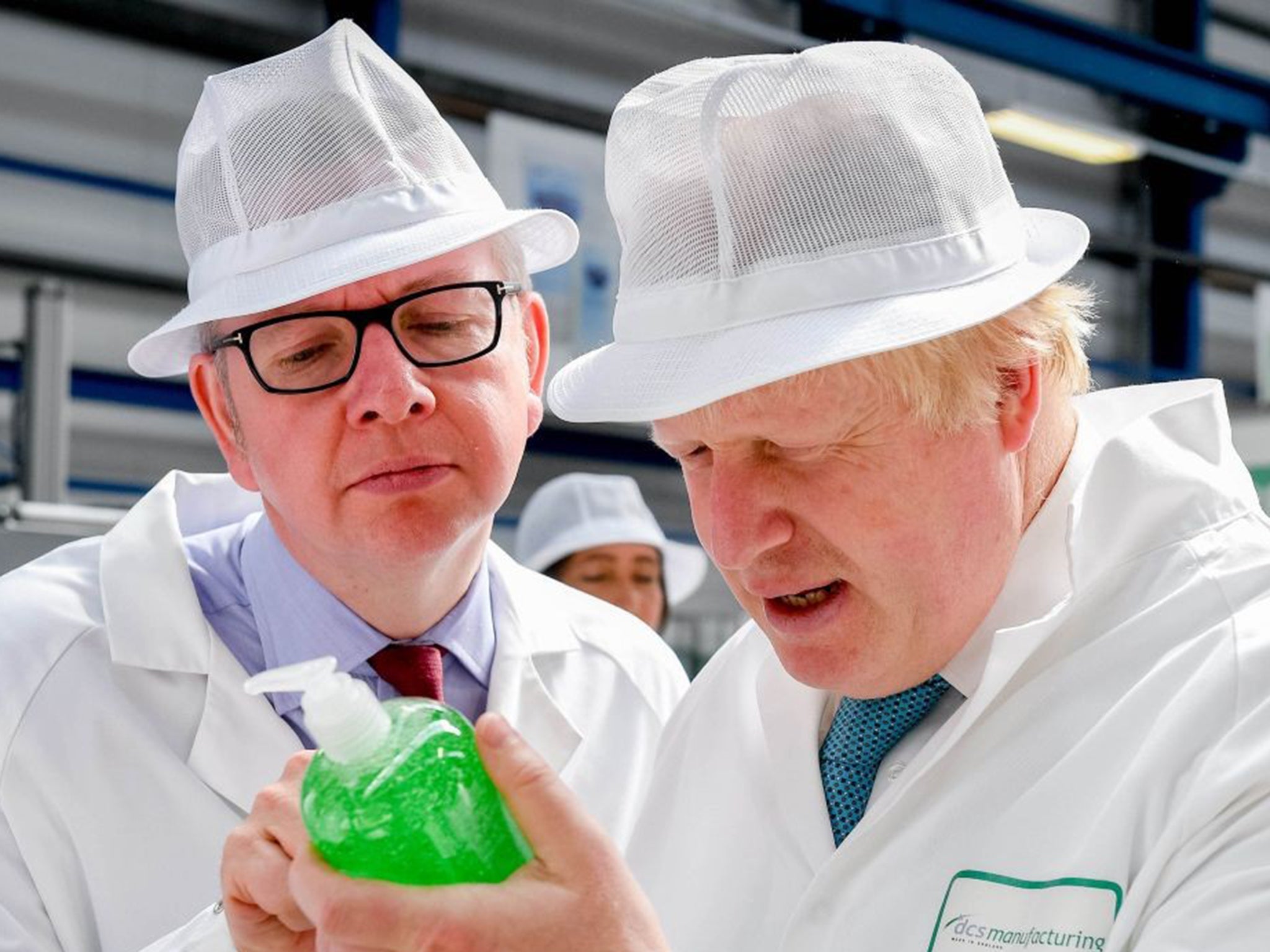Michael Gove profile: a man of unfashionable causes setting his sights on being the next Prime Minister
The surprise candidate to be Conservative leader and prime minister enjoys espousing causes that cut across the grain, from Thatcherism in Scotland to the Iraq war and Brexit

Michael Gove is an unfashionable man. When I first met him at the BBC in the 1990s, he was not just a Scottish Conservative, but a Scottish Thatcherite. With his demeanour as the younger son of an Edwardian gentleman, he seemed wholly out of place in modern Britain, a liberal country preparing itself to turn to New Labour.
He sensed that politics was changing. When I was writing a biography of Tony Blair, Labour’s new leader of the opposition, he was writing one of Michael Portillo. Gove thought Portillo was the future of the right. But before the book was published, Portillo balked at challenging John Major. He gained a reputation as a bottler, something Gove could not be accused of today, because – in the days before mobile phones – new phone lines had been laid into the Westminster house of a backer to prepare for a leadership bid.
Gove continued to admire Portillo, but was also taken by Blair. So much so that it was said he thought of joining the Labour Party in 1997. If so, he decided against it. As a columnist and an editor at The Times, he was mostly a trenchant critic of New Labour. He also got to know Rupert Murdoch, the newspaper’s owner, who still likes him, as Sarah Vine, Gove’s wife, inadvertently revealed in a leaked email this week.
His columns were sometimes contrary, and his espousal of unfashionable causes has left a trail of potential embarrassments in the electronic record. There was the column that made the case for the death penalty, for example, with only the thinnest veil of writing it as an intellectual exercise.
Then in February 2003, on the eve of the invasion of Iraq, came what he called his “Elizabeth Bennett moment”. He wrote in The Times: “By God, it’s still hard to write this, but I’m afraid I’ve got to be honest. Tony Blair is proving an outstanding Prime Minister at the moment.”
Having followed Portillo’s modernising journey from the SAS right to the liberal centre, Gove now became a Blairite – at just the moment when the British nation passed him in the opposite direction.
When the Tory modernisers finally captured the commanding heights of the Tory party, with David Cameron becoming leader in December 2005, Gove, a new MP elected that year, became a trusted friend in the leadership eyrie. He was an attendant lord to the Great Outflanking Manoeuvre of the Centre Ground, namely Cameron’s splitting the Labour Party by being more Blairite than Blair (and therefore Gordon Brown) on academy schools.
It was a difficult operation in which David Willetts was unable to finesse the Tory party’s grammar-school wing, and so Gove replaced him as education spokesman.
Thus Gove became Education Secretary, charged with putting “rocket boosters” under the academies programme. He was a brilliant reformer, committed to education as an egalitarian liberation, and yet he managed to make what should have been a unifying cause not just unfashionable but deeply unpopular.
So hostile did teachers and parents become to him that Cameron took the brave decision to sacrifice his friend for the sake of the Government. Some observers thought that Gove’s betrayal of Cameron over Brexit – another unfashionable cause Gove espoused – was revenge for this slight. The truth is more complicated. Gove was sore about his demotion to the unhappy chores of Chief Whip – as Sarah Vine, again, revealed – but Gove himself appears to have thought that he could advocate leaving the EU and stay friends with the Prime Minister and the Chancellor.
With the Prime Minister, no. But the Chancellor’s position is, again, more complicated. George Osborne has entertained Gove and Vine at Dorneywood more than once even after Gove announced that he would be advocating Leave.
Having sought to reassure Cameron that he would take a low profile in the Leave campaign, Gove then became in effect deputy leader to Boris Johnson in the shadow Leave government, vigorously making the case for Brexit.
He and Johnson deployed their rhetorical skills as columnists, making speeches as if they were articles for The Times and The Telegraph designed to provoke the smug bourgeois of the Remain side.
But now Johnson and Gove have fallen out too. For one of the most extravagantly polite people I have known, Gove has a remarkable ability to make enemies. One of his greatest feuds in Government has been with Theresa May. Most recently, he clashed with the Home Office over the prison services contract with Saudi Arabia. Whoever wins this contest, the post-Brexit, post-leadership election reconciliation reshuffle is going to be prickly.
For a man who has espoused unfashionable causes all his life – Scottish Thatcherism, the Iraq war and Brexit – Gove now hopes that the unfashionable candidate is going to surprise them all once more.
Join our commenting forum
Join thought-provoking conversations, follow other Independent readers and see their replies
Comments